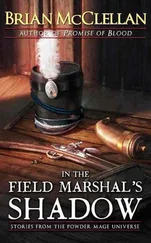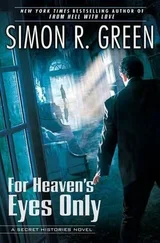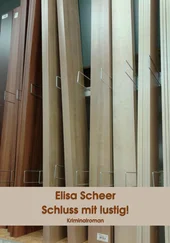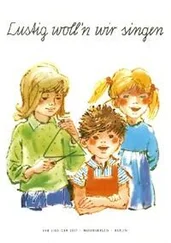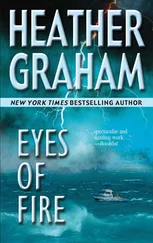“You witnessed the ugliness of the world,” the rabbi whispered. Perhaps he didn’t even want her to hear.
Had the brutality of children who didn’t yet know the miracle of life become the brutality of adults because they never grew up? Had it been due to their character, to circumstances, schooling, youth organizations, the army and the many other institutions which had sprung up all over Europe?
Are those who were sure of themselves confused, or are those who were confused sure of themselves?
Is it a punishment for the fact that too many people allowed just a handful to make the decisions?
Is it possible by the waving of a hand to turn human beings into refuse and the world into a refuse heap?
He could still hear those who proclaimed the New Order; the breaking up of what belonged together, as if it were possible to improve the daylight or the brilliance of night, the brightness of the stars, the song of birds, the colour of a lilac bush, of a lucerne flower amid the clover, the crimson of a wild poppy or the slenderness of a stalk of wheat.
The purity of conscience.
The sweet breath of hope.
The innocence of a two-year-old. The transparency of a tear.
There was no end to it. His soul was like a bottomless pit without echoes, a soundless cry, a deafening silence.
“Why did they do it?” he whispered. “How could they have done it?”
What pleasure was there in killing people whom the killer didn’t even know?
What could he invoke, which face of God? The God of infinity? The God of wisdom? The God of vengeance? The God of thunderbolts? Or the God of mercy? The God of goodness? The God of the 30 paths of wisdom? The God of the 50 gates of light? The God with the fiery sword? The God of the Covenant?
He had begun to doubt the God of speech. He could invoke only the God of silence. But wherever he looked, more was concealed than apparent. Perhaps these Gods existed only in his imagination? But were they not written about in the sacred books? Where was the God of justice? The God of right? God the saviour? He who was everlasting, unutterable, glorious, infinite, indulgent, good, incomprehensible?
The rabbi remembered how, as a young man, he had been excited by the three worlds, the higher, middle and lower world, and their relation to the human body which also contained three worlds — head, breast, and the body from the waist down.
It seemed to him improper to reflect on this in connection with Skinny. The body from the waist down and, with the girl before him, also from the waist up. Shell, transient substance and core. Blood corpuscles? Head, nerves, breast, blood, stomach and lymph, spirit, emotions and instinct, the life of the cells? He was not thinking of the second phase of creation, of procreation. She had told him about Dr Krueger’s experiments, of how he had sterilized her. About Dr S chimmelpfennig’s injections. About the psychological interrogations conducted by Oberführer Dr Blatter-Spirit. He could visualize the soldiers telling her about their families, their girlfriends, mothers and sisters, about their children. The officers, NCOs and men for whom going to war was like going to work. Their daily bread.
He did not see the beginning, he only saw the continuation. He knew now where Skinny had been and what she had done. He tried to see her ordeal in conjunction with justice, so that he would not attribute even a shadow of guilt where it was not due. He could not explain what even religion had no answers to. He was confused and disoriented. He reflected on boundless shamelessness. She had wanted to stay alive, and she could stay alive by undergoing what she had endured. When is staying alive a sin, or wanting to stay alive? When is the mere wish to stay alive blasphemy? The rabbi found himself at a point he had not reached before. There was no longer a yes or no answer. A position of good and bad, of right and wrong. What was a lie and what just an error? What was just and what unjust?
He wished it were simpler, for himself and for her. As wide open as the sea when he stood at its shore; as the sky when he looked up. Not disappearing in a fog as the stars at dawn or a shadow at night. The line between justice and sin, between blasphemy and honour. Not an accusation against those who were unable to defend themselves.
Rabbi Gideon Schapiro felt that in a land without God, in a world without God, among people without God, under the pulled-down pillars of the heavenly vault, an unbearable burden fell upon him, like boulders that would crush even the strongest man.
“Thus the disaster came about,” the rabbi murmured. “That’s where the devil came from. That’s what opened the door and the windows and swept away all barriers.”
Then he added: “Shoah”
She heard the word for the first time. It was Hebrew. From the rabbi’s expression, from his shining brown eyes, the beads of sweat that appeared on his forehead, she could guess what it meant. He pronounced the three Hebrew characters as if he were pulling a rock down upon himself.
On her first day at the brothel she had regarded her pain as a punishment — just as Estelle did. She had committed a sin and her only excuse was that she wanted to stay alive. The rabbi wondered when wishing to stay alive could be a sin. She had not expected the depth of her humiliation, nor the pain, nor her unpreparedness, her sense of vertigo and free fall — until she eventually got used to it. Not that “used to” was really the right term. Had it helped that she had to conceal all the pain, just as she did her origin? She shared with Estelle a tendency to blame herself for something that was not their fault. They were surrounded by a world within which was their private world, invisible to others, a world of personal guilt which became their home.
“There is no more justice,” the rabbi said.
Then he added: “It is an unending chain.” He was thinking of the injustice that enveloped them. He knew of no book that could teach one how to live in such a time.
“We have learned to die,” he whispered. Was he saying that they were waiting for a second heaven? She didn’t wish to ask him.
It did not bother her that he was talking in riddles. Perhaps she, too, sometimes talked in this way, even though it did her good to speak openly. She wondered how far she should allow her openness free rein. She was afraid that she might herself become terrified by what she was telling him.
They were waiting for the first star to appear.
“What are we, each of us?” the rabbi asked. And Skinny answered him, just as quietly: “I am just a lump of flesh.”
She ate well. The rabbi was a good cook. She left practically nothing of what he put before her or let her prepare for herself. She devoured the soft Hungarian bread with its crisp crust that the baker delivered, and the Hungarian salami the butcher brought. At first, the rabbi paid them in Hungarian pengö, later with gold rings and other valuables, until eventually he had nothing left and the butcher and baker supplied him on credit.
On the third day the rabbi opened a large cupboard. One half of it contained the clothes of his wife, the other the clothes and accessories of his daughter.
“Her name was Erzsika,” Rabbi Schapiro said.
She realized they were both dead.
“Take whatever you need. It’s as if they were giving it to you,” the rabbi told her.
She looked at a cotton nightshirt and a flannel one. The rabbi took them out from the stack of underwear and handed them to her. She did not know yet which of the two she would sleep in, perhaps neither. She had become accustomed to wearing things that had belonged to dead people.
During the night she dreamt of Erzsika, the rabbi’s daughter.
The rabbi did not mention them to her again. Not until much later did she ask about them at all. Hints were sufficient; she worked out the rest for herself.
Читать дальше
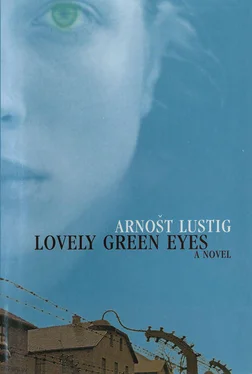

![Корнелл Вулрич - Eyes That Watch You [= The Case of the Talking Eyes]](/books/32103/kornell-vulrich-eyes-that-watch-you-the-case-of-thumb.webp)
